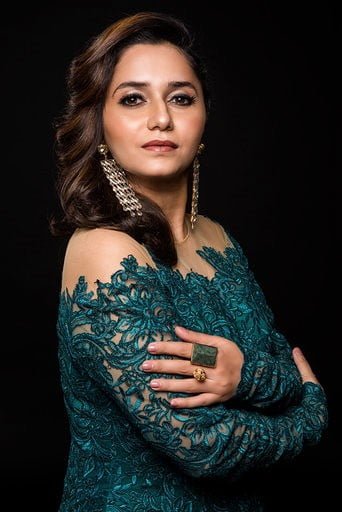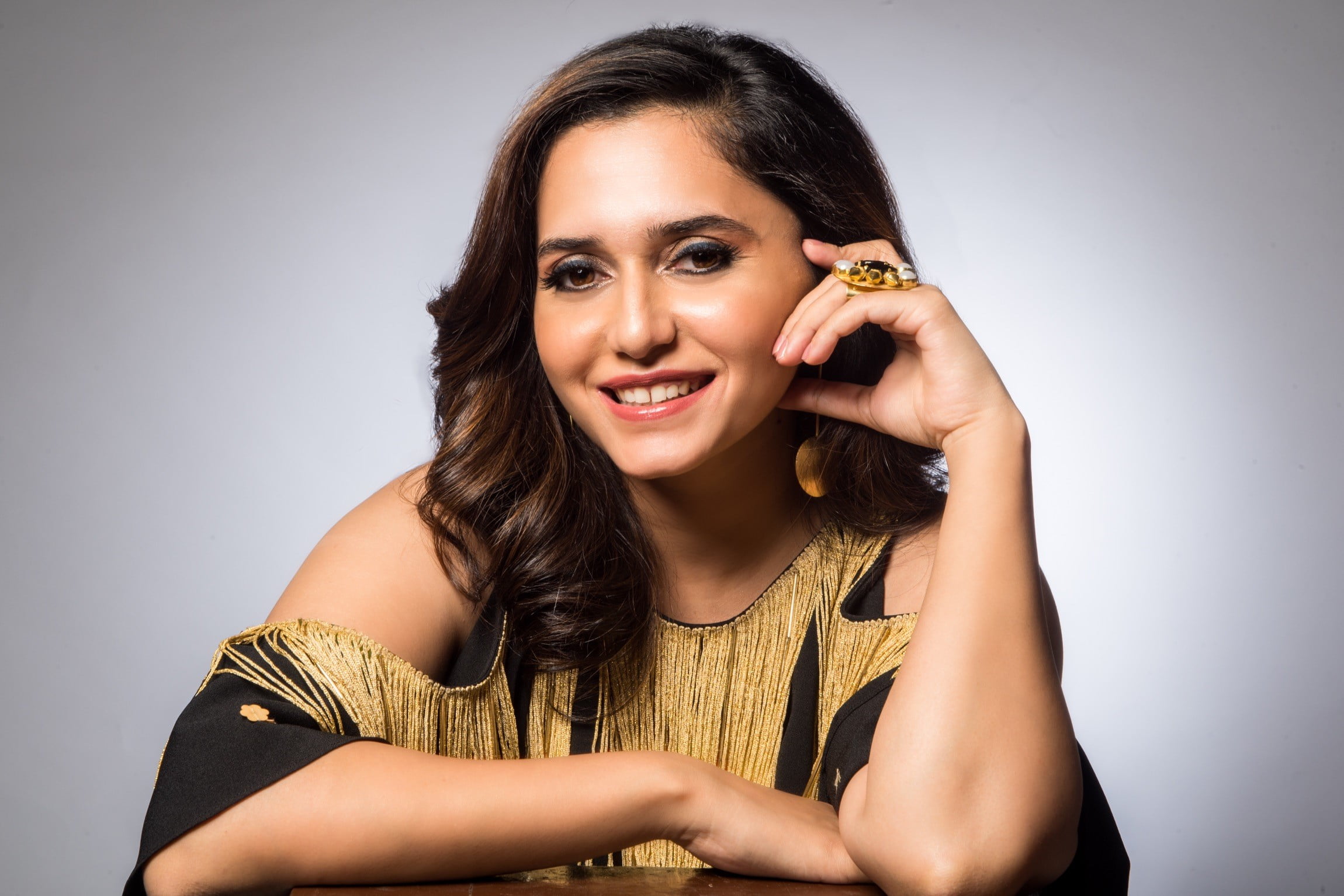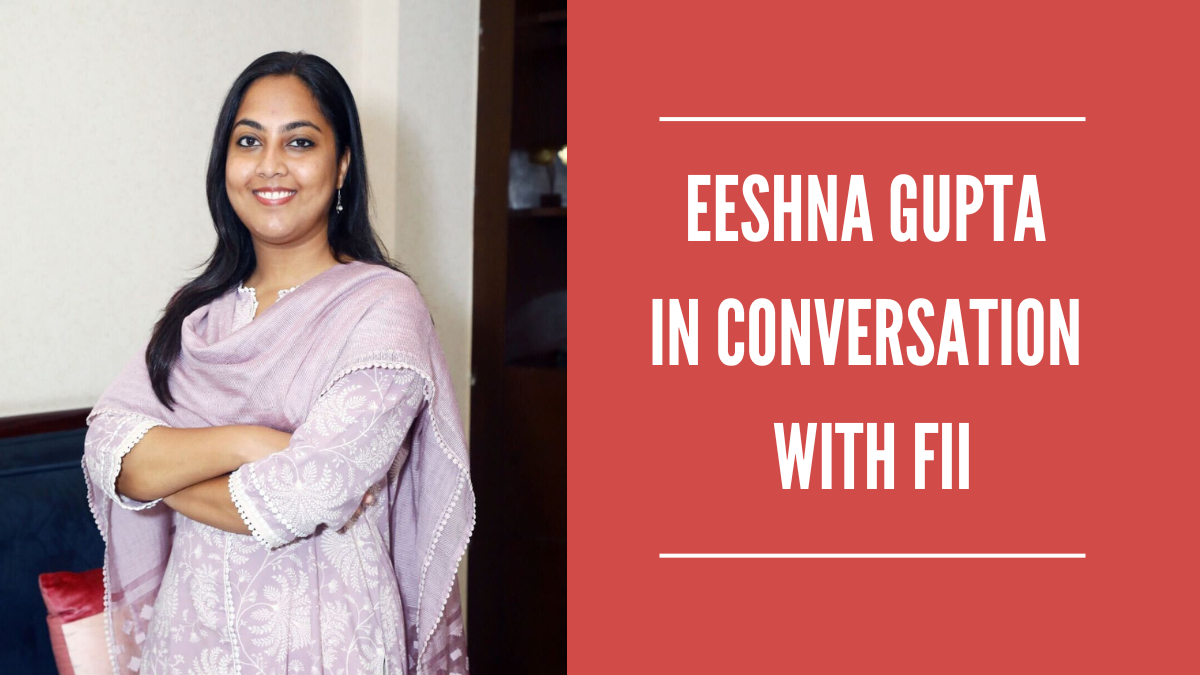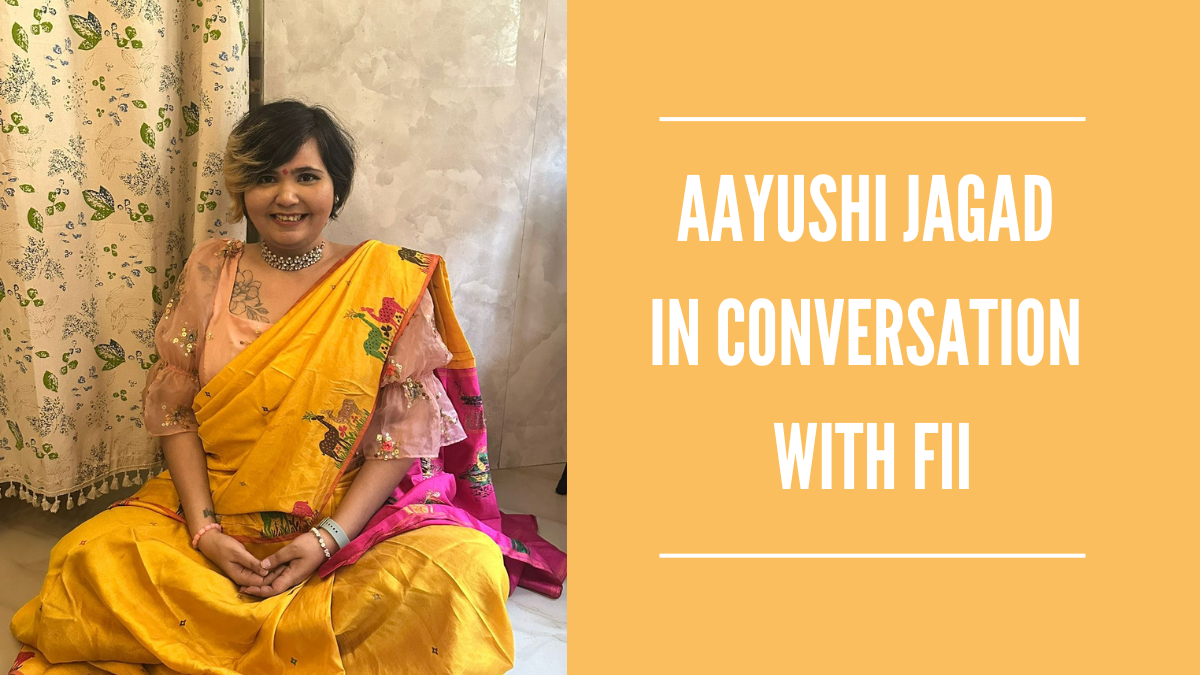Unless the tastes and mindsets of the audience change, item songs will not go away, certainly not in Bollywood
Priya Saraiya
From being a child prodigy to establishing herself as one of the most talented artists of her generation, Priya Saraiya has had a remarkable journey in the music industry. Born in Mumbai, she received training in Hindustani classical music as well as Western music at an early age, before diversifying into writing and composing songs later on in her career. Having made her Bollywood debut with F.A.L.T.U. in 2011, Saraiya has been responsible for some of the most soulful songs over the last decade, be it Saibo, Piya O Re Piya, Jeene Laga Hoon, or Sun Saathiya.
In an exclusive interaction with FII, Saraiya opened up about her days as a young performer on stage, her musical rapport with husband Jigar Saraiya, why she thinks item songs will not be gone anytime soon, the absence of constructive musical training for Bollywood aspirants, and much more.
This conversation was organised by Spotify India as part of its AmplifiHer campaign that aims to shine the spotlight on women in audio.
Q: As a child artist, you travelled extensively with the music group “Little Wonders”, set up by music directors Kalyanji Shah and Anandji Shah. What was that experience like? Is it true that you did close to 2000 stage shows during that time?
A: I think even more than that. I started learning music when I was four and a half or five years old, and by the age of six I was already performing on stage. Little Wonders was all about getting the best out of child artists, and Kalyanji-Anandji effectively pioneered the model that was later adopted by the reality shows.
This was a group that nurtured names such as Divya Kumar, Aditya Narayan, Sunidhi Chauhan, and so many other artists. We would travel across continents and have an amazing time. I’m not sure if the next generation of singers was able to experience anything similar.
Q: Were there any techniques that you were taught at the time which might have seemed strange to you but ended up helping you later on in life?
A: I remember one day before a show I had a sore throat and Kalyanji-Anandji came on stage to find out what was wrong. Once they found out, they told me, “Achha thik hai, bike chalao” (It’s okay, imitate the sound of a bike). Then they showed me how to do it—it was basically the sound of a motorcycle engine being revved up. I copied the technique and everyone around me started laughing. Back then, it seemed like a joke to me.
But years later when I was working on a song, my husband Jigar asked me if I could create some quirky sounds to go with the song. I knew what to do then and repeated the motorcycle sound. That eventually became the theme of Go Goa Gone.
Q: Which is that one song of yours that is the closest to your heart?
A: It would be Saibo (from the film Shor in the City). When the song was made, the producer told us that there are no characters in the film who speak Gujarati. So there was no need to use saibo, a Gujarati word. But we tried to convince the producer to just listen to the song, because we knew people would fall in love with it. Ultimately, the song got through, was released, and it also got nominated for a bunch of awards.
Also read: Men Dominate Bollywood And The Music Industry: Asees Kaur
Q: You have collaborated a lot with the music duo of Sachin-Jigar. Given that one half of the duo, Jigar Saraiya, is your husband, how has the creative process been like for you?
A: Jigar and I have very different choices when it comes to music. He loves his Western music, particularly John Mayer, whereas I am more of a thumris and ghazals person. But at the same time we also inspire each other, and share a lot of music with each other. Whenever we go out on a long drive, we are always exchanging songs. So it’s good fun.

Q: Love songs in Bollywood are written predominantly from the male perspective. When you are working on a love song, do you try to ensure that the female subject of the song retains her agency in the lyrics or the composition?
A: Not really. It is the storywriter or the director who decides what situation we are catering to. Mostly in Bollywood films, it is the man who takes the initiative on matters of the heart, the reverse is a rarity. That obviously plays a big part in how songs are written and what perspectives they include.
But that might slowly start to change given how more and more films nowadays have female protagonists. Previously, female characters would exist solely to facilitate their male counterparts. That is changing nowadays.
Q: There has been a fair amount of debate about how item numbers in Bollywood undermine the identity of a woman as their sole purpose is objectification. Some Bollywood item songs are particularly notorious for their appallingly misogynistic lyrics. Do you think item songs are required or relevant in any way or is it a genre of music that should be phased out?
A: When you go to certain parts of India, such as the North Indian states of Bihar and Uttar Pradesh, or even the interiors of a state like Maharashtra…the kind of songs people listen to over there and the lyrics of those songs will make you realise it’s not only Bollywood that does item songs. Bollywood is only taking up these songs because it’s working for large sections of the audience across the country.
Unless the tastes and mindsets of the audience change, item songs will not go away, certainly not in Bollywood.
Also read: Sexism In The Music Industry: Women Are Either Sidelined Or Sensationalised
Q: Of late a number of Hindi film songs have started incorporating lyrics from other Indian languages, be it Punjabi, Marathi, Gujarati, or Bengali. What do you make of this development?
A: It’s definitely a positive development. Punjabi, for instance, has virtually become a global language now. So it’s natural for it to be included in Bollywood songs, too. In India, we also have a very rich culture of folk music in a number of languages. So that’s something Bollywood should think about tapping into as well.
Q: While in the last few years we have seen a number of female singers rise to prominence in Bollywood, there is still a lack of female lyricists in the industry. Why do you think this is the case? Are there structural barriers that female lyricists have to break through?
A: There’s no single place that teaches you how to write a Bollywood song. You may write poetry, but when it comes to writing on a certain composer’s tune, maintaining a certain metre, it’s a challenging process. You have to keep the script, the situation, and the melody in mind. Whether you are male or female, the lack of a proper education in Bollywood music composition and writing often holds back talent in the industry.
Q: Finally, where do you see yourself in five years’ time? What are the goals you are still chasing?
A: When I’m writing, I think about singing. When I’m singing, I think about playing some instrument. When I’m playing an instrument, I think about learning sound engineering. So I want to do everything in music. I want to explore and learn every aspect of music because only then can I become a complete artist. I don’t want to be labelled as a singer or a lyricist, I want to be known as a complete musician.
Images courtesy Priya Saraiya’s team
About the author(s)
Priyam Marik is a freelance journalist based in Kolkata, writing on politics, culture, and sport. He completed his Master’s in journalism from the University of Sussex, United Kingdom in 2020. Priyam is also a published poet, and his first book Scintillae, came out in July 2019. When not writing, Priyam loves to debate, sample new cuisines, and cheer for FC Barcelona.




